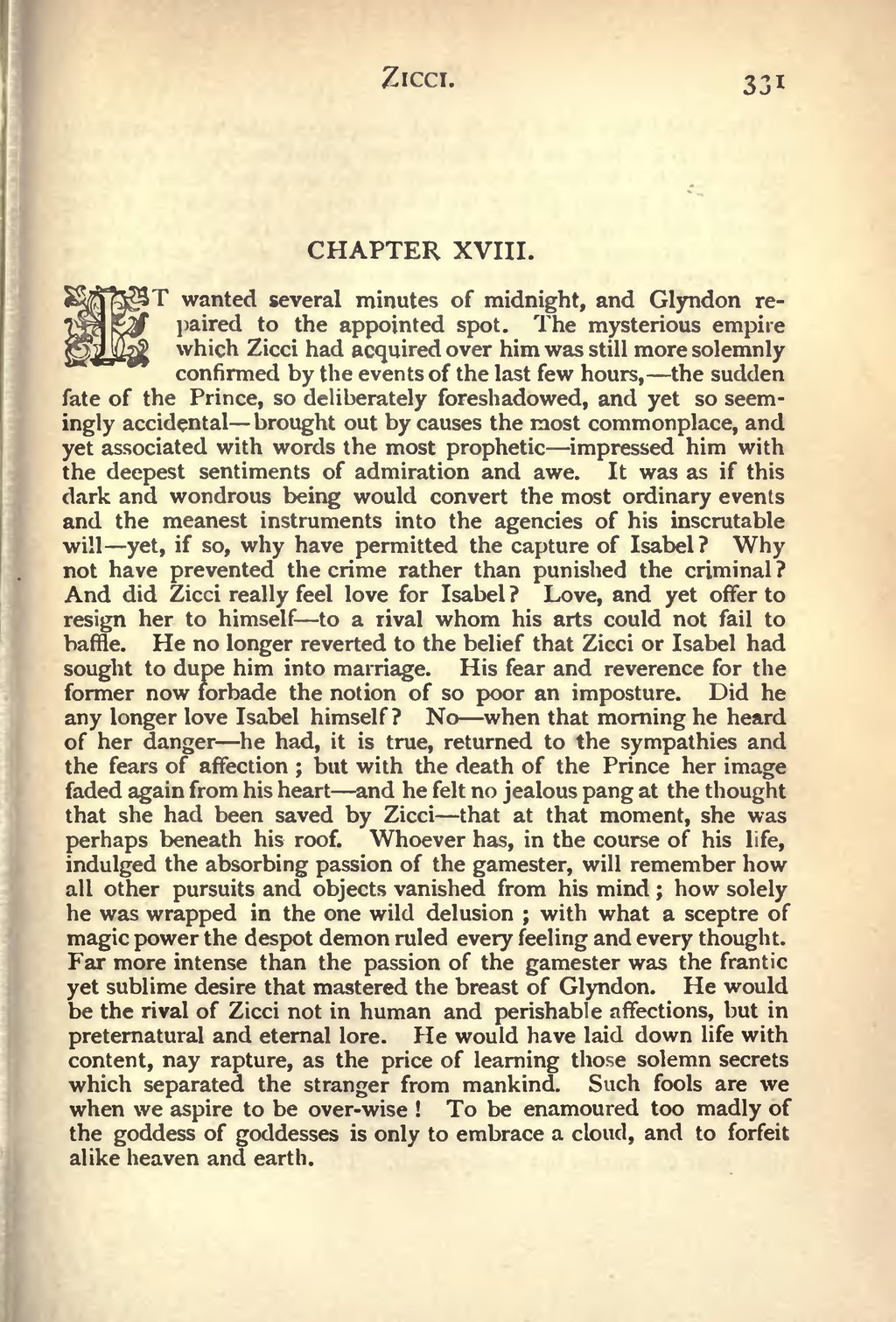CHAPTER XVIII.
IT wanted several minutes of midnight, and Glyndon repaired to the appointed spot. The mysterious empire which Zicci had acquired over him was still more solemnly confirmed by the events of the last few hours,—the sudden fate of the Prince, so deliberately foreshadowed, and yet so seemingly accidental—brought out by causes the most commonplace, and yet associated with words the most prophetic—impressed him with the deepest sentiments of admiration and awe. It was as if this dark and wondrous being would convert the most ordinary events and the meanest instruments into the agencies of his inscrutable will—yet, if so, why have permitted the capture of Isabel? Why not have prevented the crime rather than punished the criminal? And did Zicci really feel love for Isabel? Love, and yet offer to resign her to himself—to a rival whom his arts could not fail to baffle. He no longer reverted to the belief that Zicci or Isabel had sought to dupe him into marriage. His fear and reverence for the former now forbade the notion of so poor an imposture. Did he any longer love Isabel himself? No—when that morning he heard of her danger he had, it is true, returned to the sympathies and the fears of affection; but with the death of the Prince her image faded again from his heart—and he felt no jealous pang at the thought that she had been saved by Zicci that at that moment, she was perhaps beneath his roof. Whoever has, in the course of his life, indulged the absorbing passion of the gamester, will remember how all other pursuits and objects vanished from his mind; how solely he was wrapped in the one wild delusion; with what a sceptre of magic power the despot demon ruled every feeling and every thought. Far more intense than the passion of the gamester was the frantic yet sublime desire that mastered the breast of Glyndon. He would be the rival of Zicci not in human and perishable affections, but in preternatural and eternal lore. He would have laid down life with content, nay rapture, as the price of learning those solemn secrets which separated the stranger from mankind. Such fools are we when we aspire to be over-wise! To be enamoured too madly of the goddess of goddesses is only to embrace a cloud, and to forfeit alike heaven and earth.
